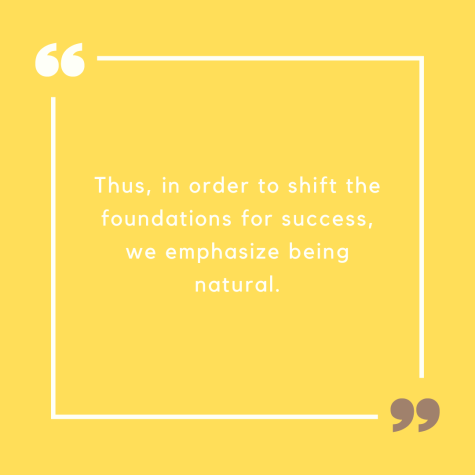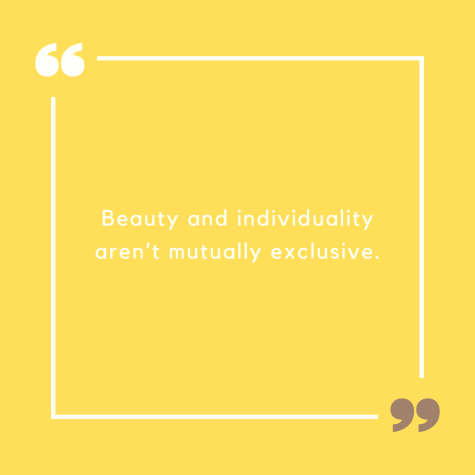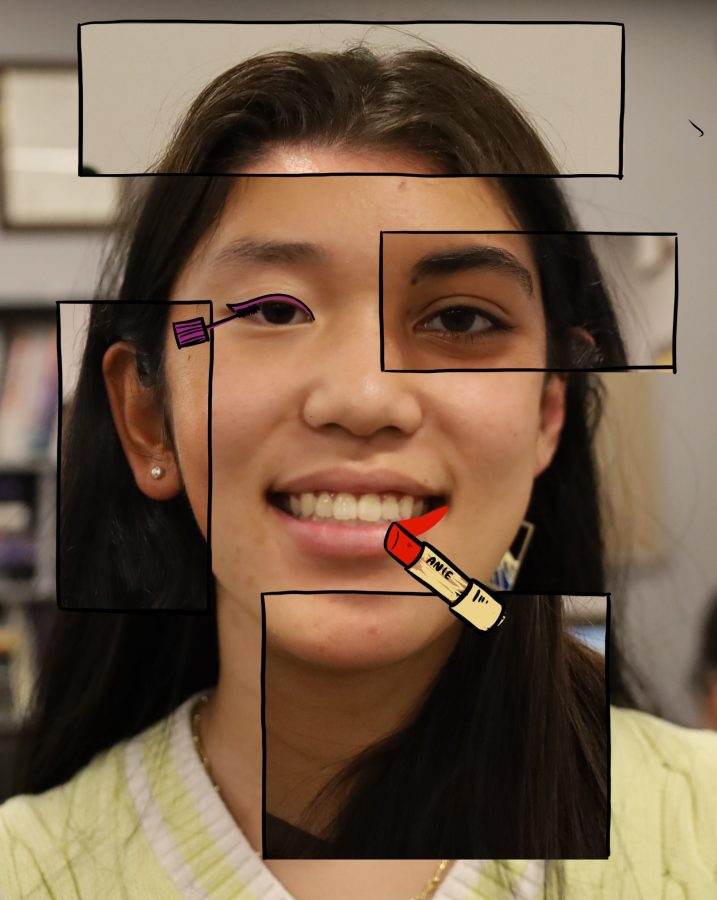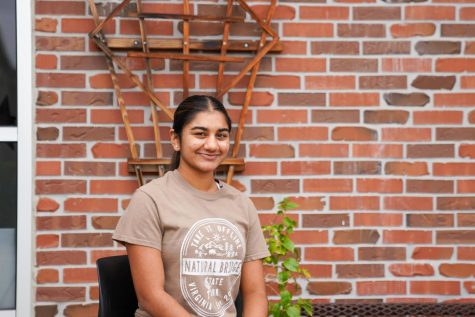Staff Editorial: Beauty for ourselves
Learning to be less judgmental about how others approach beauty
Although society tends to diminish the value of beautification efforts, we must remind ourselves that such a negative view is unneeded.
November 17, 2022
This June, influencer Jada Travis posted a TikTok explaining how she hasn’t shaved her armpit hair in three years because she said “I don’t care” in the grand scheme of things. Her TikTok went viral as her viewers labeled her a “hero” for going against the traditional beauty standards set for women. The response to Travis’ video reveals the growing modern sentiment towards preferring “natural” beauty.
Makeup brands pride themselves on creating products that help their customers create a “no makeup makeup” look. Transparent lip gloss for just the slightest shimmer. A few dabs of liquid blush to achieve the perfect, naturally rosy cheeks. TikTok teems with users that show off their unshaved leg and arm hair, proudly asking, “Who cares what people think?”
We hear these messages everywhere. We shouldn’t care about shaving leg hair because it’s a natural part of our body. We shouldn’t spend so much time shopping for clothes, makeup, hair products because we are so much more than how we look. We shouldn’t take the time to apply concealer and eyeshadow because we should love our natural flaws. We shouldn’t, we shouldn’t, we shouldn’t.

Often, this emphasis on naturality stems from a condemnation of pretty privilege. A 2006 study found that employers were 10.5% more likely to raise the salaries of attractive people, and a study from 2017 found that attractive women were more likely to earn higher grades than those that weren’t. Clearly, there is an issue with this, for our success shouldn’t be based on something that we’re naturally given. Thus, in order to shift the foundations for success, we emphasize being natural.
However, the issue with our society is that we’re misconstruing putting effort into our appearance as “trying too hard.” There’s nothing wrong with putting on some makeup or straightening your hair if you want to. However, we judge the people these systems affect rather than putting pressure on the systems that create these standards. Instead of combatting the societal bias for people who are more conventionally attractive, we develop condescending attitudes towards those who “aren’t natural,” calling them out for being shallow.
Such categories are prominent within school environments as well. We categorize our classmates into the “pretty ones” and the “smart ones,” and then create stigmatized beliefs about the personalities of individuals based on those flawed categorizations and picking and choosing who we associate ourselves with. This is a problem because when we judge people off of face value, we’re missing out on every other incredible dimension that people encompass, things that make them truly diverse people.

In reality, there is no shame in caring about appearance, whether it be for yourself or for others. We don’t want to look like we try on appearances because it’s seen as “too feminine,” but there’s nothing wrong with liking traditionally feminine things. It’s important that we learn to be less judgemental of others when they do try to make themselves more beautiful. It’s important for people to understand that they’re allowed to put effort into their appearance because femininity does not make you weak. Beauty and individuality aren’t mutually exclusive.
It’s time to destigmatize beauty, to see it as something beautiful again. One way to do this is by reframing personal beautification efforts as self-care. If we’re doing a full-blown makeup routine instead of simply moisturizing, so be it. There’s nothing wrong with adding a little glam to our look. The way people perceive our efforts to look beautiful shouldn’t be something that we concern ourselves with, because we’re beautiful for ourselves.
In the end, while natural beauty is rooted in good intentions, it restricts us from understanding people on a deeper level, for more than just the way they look. Beauty means effort, but effort isn’t a bad thing, because beauty isn’t a bad thing.
Beauty is in the eye of the beholder, not the viewer.


















